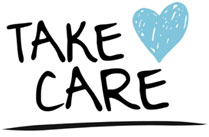 Do you worry? That’s a silly question. Of course you do. Worry is a common phenomenon in daily life, and students are no exception. Worry can be described as the mental distress that occurs when we think about an anticipated future event where the outcome is uncertain but we assume it will be negative. Worry is considered to be the cognitive (thinking) part of anxiety.
Do you worry? That’s a silly question. Of course you do. Worry is a common phenomenon in daily life, and students are no exception. Worry can be described as the mental distress that occurs when we think about an anticipated future event where the outcome is uncertain but we assume it will be negative. Worry is considered to be the cognitive (thinking) part of anxiety.
Some worry can prove helpful if we use it to plan how to solve a problem that is affecting us right now and that we can do something about. Solving the problem will terminate the worry. Psychologists have referred to this as real-event or real problem worry. An example of a real problem worry would be thinking about the three assignments that are all due next week, and coming up with a plan on when/how we will work on each.
But not all worry is useful. Psychologists have referred to another type of worry as hypothetical worry. Hypothetical worries are about things that don’t currently exist, that have not actually happened but might in the future. Hypothetical worriers expect excessively negative future events to occur, without considering how probable they are. These are the “what if…” kinds of worries, frequently focusing on worst-case scenarios. These worries often revolve around situations that we cannot control, so they can’t lead to problem solving that can terminate the worry. Examples of “hypothetical worry” could be worrying about what would happen if your parents got sick, or worrying about whether you’ll ever get married.
 A recent study (by psychologists LaFreniere and Newman), titled “Exposing Worry’s Deceit”, surveyed anxious university students who had reported persistent worry about future events turning out badly. For the study, students were required to record their worrisome predictions daily for 10 days, report on how distressing their worries were and estimate how much time their worries took up during a day. For 30 days, they also tracked the actual outcomes for those things they had been worried about.
A recent study (by psychologists LaFreniere and Newman), titled “Exposing Worry’s Deceit”, surveyed anxious university students who had reported persistent worry about future events turning out badly. For the study, students were required to record their worrisome predictions daily for 10 days, report on how distressing their worries were and estimate how much time their worries took up during a day. For 30 days, they also tracked the actual outcomes for those things they had been worried about.
The research showed that just over 91% of the worry predictions did NOT come true! In fact, 30% of the students reported that none of their worry predictions had come true. Of the few predictions that did come true, students reported that the outcome was better than they had expected in 30% of the cases. So, altogether, in only very few situations, was the outcome as bad as what was predicted. The average distress about each worry was 4.5, on a scale of 1 to 7, suggesting that the worries were moderately to highly distressful. Furthermore, participants reported that they had spent 25% of their day thinking about their worries.

Some people who regularly worry believe that their worry is useful to them, and see it as a way to cope. But, in fact, as the study showed, there is a lot of wasted time and mental energy spent worrying about things that, much more often than not, never happen.
Some people see that they worry and then their feared prediction doesn’t happen, so they conclude that the worry is what kept bad outcomes away. In psychological terms, the worry has been negatively reinforced because the bad thing didn’t happen. This, of course, is not a logical conclusion. Worry (a mental act) neither creates nor prevents life circumstances. Most likely, if you try “not worrying”, the bad outcome also won’t happen.

There are many techniques that can be helpful in dealing with anxiety and worry, and many will be discussed in other blogs, but one other finding from this LaFrenier and Newman study provides a coping tip for dealing with hypothetical worry. The study showed that the participants who made the most untrue predictions and realized that their predictions were wrong were the participants whose worrying decreased the most over the course of the study. By seeing that their predictions were improbable and not likely to come true, worry and anxiety decreased.
 Pay attention to the actual outcomes of your worry predictions, and self-monitor to keep track of whether or not they come true. Were they realistic, likely or helpful? If not, notice when your worries come up and attempt to focus on developing more adaptive, and evidence-based beliefs and predictions.
Pay attention to the actual outcomes of your worry predictions, and self-monitor to keep track of whether or not they come true. Were they realistic, likely or helpful? If not, notice when your worries come up and attempt to focus on developing more adaptive, and evidence-based beliefs and predictions.
Take care, and be good to yourself,
Rhonda Gilby


